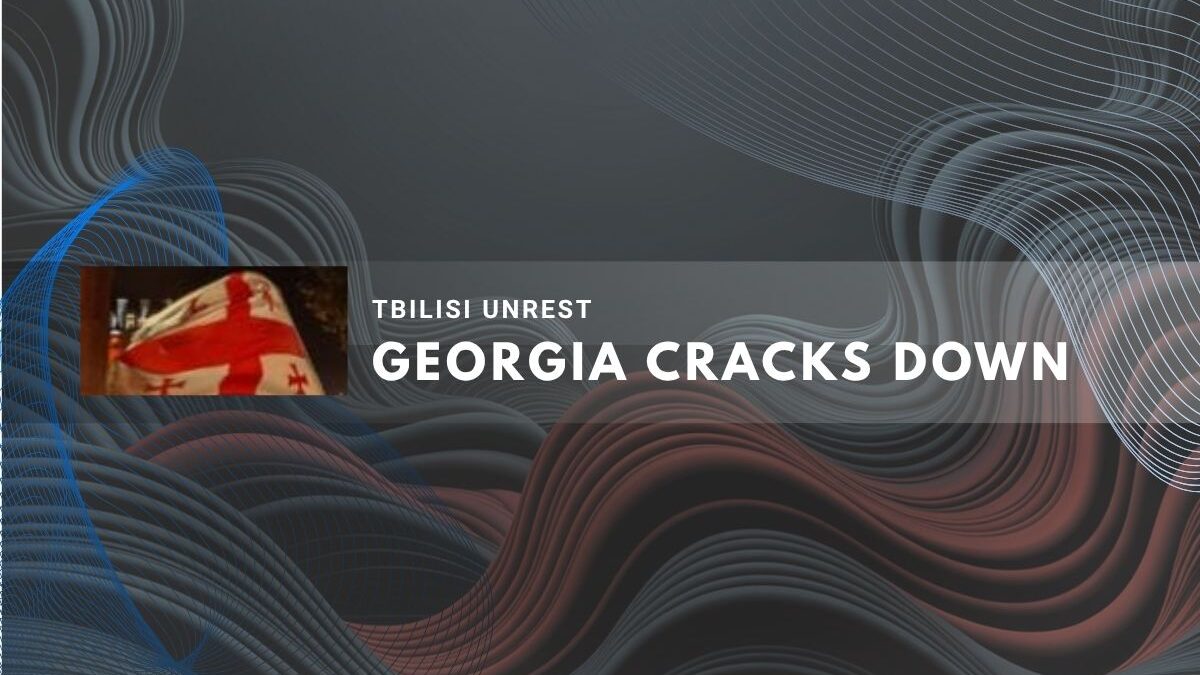On October 4, 2025, tens of thousands of Georgians protest against in Tbilisi against georgian the ruling Georgian Dream party. The protest against Georgian Dream showed growing anger against Georgian leadership. Demonstrators attempted to storm the presidential palace, and security forces used tear gas and water cannons, leading to arrests and injuries.
Overview of the October 4 Events
On October 4, 2025, about 20,000 Georgians gathered in Tbilisi in what opposition leaders called a “peaceful revolution” aimed at ousting the ruling Georgian Dream party, which they accused of authoritarianism and pro-Russian bias. The protest coincided with municipal elections largely boycotted by opposition parties. The crowd, rallied by opera singer and activist Paata Burchuladze, marched toward the Orbeliani Palace, the presidential residence, attempting to storm its grounds.
Security forces responded with pepper spray, tear gas, and water cannons to repel the crowd. Clashes lasted several hours, resulting in injuries to six protesters and 21 police officers, including one officer in serious condition.[1][2][3][7]
Government Response and Legal Actions
Prime Minister Irakli Kobakhidze condemned the protests, calling them an attempt at a coup backed by foreign intelligence and EU officials. By early October 5, the authorities had arrested Burchuladze and other leading organizers, charging them with attempts to violently overthrow the constitutional order under specific criminal code articles. Over 60 people connected to the protests were detained in the subsequent days, with many held in pre-trial custody.[3][1]
The Georgian Dream party accelerated legislative reforms to tighten restrictions on protests. New laws impose administrative detention for acts such as covering faces during rallies, blocking roads, or threatening law enforcement. Repeat offenses could bring up to two years in prison. These laws have been actively enforced since mid-October, resulting in further arrests and detentions of activists.
The ruling party has also pursued measures to curtail opposition political rights, proposing bans on opposition parties and restrictions on participation in elections by those “associated” with them.[4][10][3]
Political Context and Foreign Relations
The events unfolded against the backdrop of strained relations with the European Union. Georgia’s EU accession talks were stalled since late 2024, causing frustration within opposition ranks who see the government as backsliding toward authoritarianism and too close to Moscow. Kobakhidze accused the EU of indirect support for the protests, a charge the EU rejected as misinformation.
Opposition parties, notably the United National Movement and its allies, promote democratic reforms and closer EU integration. They criticized the crackdown as a political power grab by the Georgian Dream party led by billionaire Bidzina Ivanishvili.
The political crisis marks a significant democratic backslide in Georgia, where authorities increasingly target civil society, media, and opposition figures.[8][9][10][1][3]



